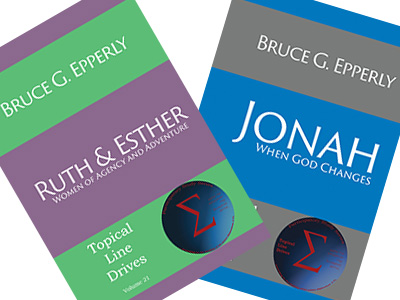Uzzah and the Ark – 1 Chronicles 13
I’m continuing with brief notes on the Cornerstone Biblical Commentary volume on 1 & 2 Chronicles by Mark J. Boda. I previously provided an overview and some notes on the coverage of 1 Chornicles 1-9, and 1 Chronicles 10-12.
As I mentioned in my previous post I wanted to make some specific comments on 1 Chronicles 13, dealing with David’s first attempt to move the ark to Jerusalem. It illustrates two different approaches to commentary on a passage of scripture. It is probably not surprising that the one thing most people remember about the chapter is the same one I emphasized in my title: The moment when Uzzah touched the ark. In fact, in the Chronicler’s story, that is a minor point. Yes, it provides the reason for the failure of that attempt, but Uzzah and his life is not the major concern.
I recall a few years ago teaching a class on the Bible in general. We were running through some themes in the Old Testament, and especially dealing with the conquest of Canaan. I was emphasizing some spiritual aspects of the story when I saw that one lady in the class was building pressure. Finally she raised her hand and interrupted.
“I understand about all this spiritual stuff,” she said. “But the fact remains that in the story real people are dying! Now what about that?”
Joshua and Judges don’t address the issues that concern many modern audiences. Those books don’t spend the time worrying about just why God would allow, much less command, all that slaughter.
In the face of that there are two distinct ways we can approach the text. (Well, of course there are more, but just two that I want to contrast here.) I’m not saying that one or the other of these ways is the way to approach a passage, but it’s useful to know which way a commentary leans.
The first way is to look at the text entirely in its own context. What was the writer trying to address? In 1 Chronicles 13, some of the issues involve the relationship between the ruler and the worshiping community, particularly priests and in Israel’s case, Levites. The moving of the ark forms a key point in David’s rise to power and eventually his preparation for the building of the temple by his son Solomon. Internally, there is little concern for Uzzah. David is certainly concerned that this has happened, but the concern is not directed to the fairness of Uzzah’s death, or how proportionate the penalty was to the offense.
In fact, it may well be that the writer did not consider this so much of a punishment by God, but rather simply the results of improperly coming into contact with something holy. One would as well become offended at God because one touched high tension wires and died in consequence.
The second way one can look at a passage such as this is from the point of view of the questions it raises in modern readers. Why would God be so nasty as to kill Uzzah when all he was doing was trying to keep the ark safe. But as Boda notes: “This incident is a subtle reminder that God sets the agenda for his worship; he must be worshiped in the way he as required.” I would ask just what was “subtle” about it!
Ideally, we go from reading the text for what it is in its own context to hearing the text speak in ours. If we see events such as this as historically valid, then we have to deal with God’s action. We worship a God who would “break out” against Uzzah in this particular way. One can keep the text within its own world by assuming that this is not an actual action of God, but rather just a view of God by the Chronicler. One should note, of course, that the Chronicler is hardly alone in this view.
A commentary that emphasizes the first approach is more useful in terms of studying the text, but if you’re a pastor in a hurry who is looking for sermon material, it provides a much longer path to speaking to the questions the congregation is likely asking. A commentary that takes the second approach often answers the question at the expense of the text, but it can be much more helpful to the hurried reader who needs something quickly usable.
This commentary clearly takes the first approach. I would note as an example of the second approach the book Who’s Afraid of the Old Testament God? published by my company. The author is well aware of the text, but is addressing the questions that are going to be asked by modern readers. That book is not a commentary, which is probably a better venue in which to discuss such questions.


